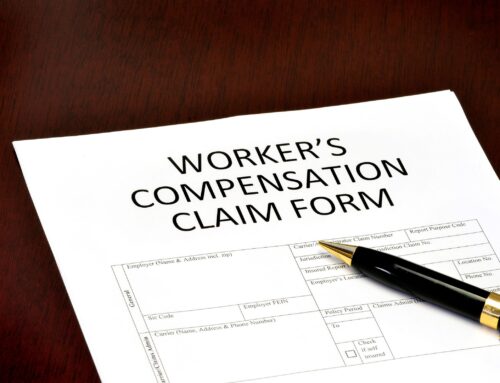When a workplace injury occurs, navigating the workers’ compensation process can be challenging, especially if you’re not familiar with the rules and timelines. One crucial concept in this process is the statute of limitations, which is essentially the deadline for filing workers comp claims in NJ. Missing this deadline can prevent you from receiving the benefits you’re entitled to, making it essential to act swiftly. In this post, we’ll walk you through what the workers comp time limits in NJ entail, the steps to ensure timely filing, and what to do if you’ve missed a deadline.
Understanding New Jersey’s Statute of Limitations for Workers’ Compensation Claims
In New Jersey, the statute of limitations for a workers’ compensation claim is generally two years. This means that if you have been injured on the job, you must file your claim within two years from the date of the injury, or two years from the date you received your last compensation payment or authorized medical care, whichever is later. Meeting this deadline is essential to protecting your right to benefits, as missing it can result in a loss of eligibility.
However, it’s important to note that the specifics of your case may impact the deadline. Consulting with an NJ workers compensation lawyer early in the process can provide you with tailored advice to ensure you don’t miss these important deadlines.
Steps for Reporting a Workplace Injury and Filing a Claim
To ensure your claim is filed within the NJ injury claim statute of limitations, here are the key steps to follow:
-
- Report the Injury Immediately: As soon as an injury occurs, report it to your employer. In New Jersey, you should ideally report the injury within 90 days. While the 90-day window is not a filing deadline, delaying a report can complicate your case and make it harder to establish a claim.
- Seek Medical Attention and Keep Documentation: Request medical treatment from your employer as soon as possible. Detailed medical records support your claim by establishing the nature and severity of your injury. These documents will be essential when you move forward with filing workers comp claim NJ.
- File Your Claim Promptly: Once you’ve reported your injury and received medical attention, file your workers’ comp claim well before the two-year deadline. By filing early, you minimize the risk of overlooking the workers comp time limits NJ sets forth, and give yourself room to address any unexpected delays.
Following these steps can help strengthen your case and improve your chances of receiving the compensation you deserve.
Are There Exceptions to the Statute of Limitations?
In some cases, the statute of limitations may be modified due to specific circumstances. While exceptions are rare, they can apply in situations where:
- The Injury or Illness Has a Delayed Onset: Certain injuries or illnesses, such as those caused by exposure to hazardous materials, may not manifest immediately. In these cases, the statute of limitations might begin when the injury is diagnosed, rather than the date of exposure. This is often referred to as the “discovery rule.”
- Mental Health Conditions Resulting from Workplace Trauma: Psychological injuries resulting from traumatic events at work may also qualify for a modified timeline. As with physical injuries, it’s crucial to document your symptoms and seek legal guidance to understand your rights.
- Employer Misconduct or Retaliation: If an employer misled you about your eligibility to file or retaliated against you for seeking benefits, you may have grounds for an exception. Consulting an NJ workers compensation lawyer in such cases can help clarify whether you have grounds for an extended deadline.
Understanding these exceptions can be challenging, and relying on an experienced workers’ comp attorney can help you navigate the system effectively.
The statute of limitations in New Jersey is a critical deadline for injured workers seeking compensation. Acting within the NJ injury claim statute of limitations ensures that you don’t lose access to benefits you may be entitled to. After a workplace injury, promptly reporting the incident, keeping thorough documentation, and consulting with an NJ workers compensation lawyer can make all the difference. If you have any questions or concerns about filing workers comp claim NJ or believe you may have missed a deadline, don’t hesitate to seek legal assistance to protect your rights and secure the support you deserve.






